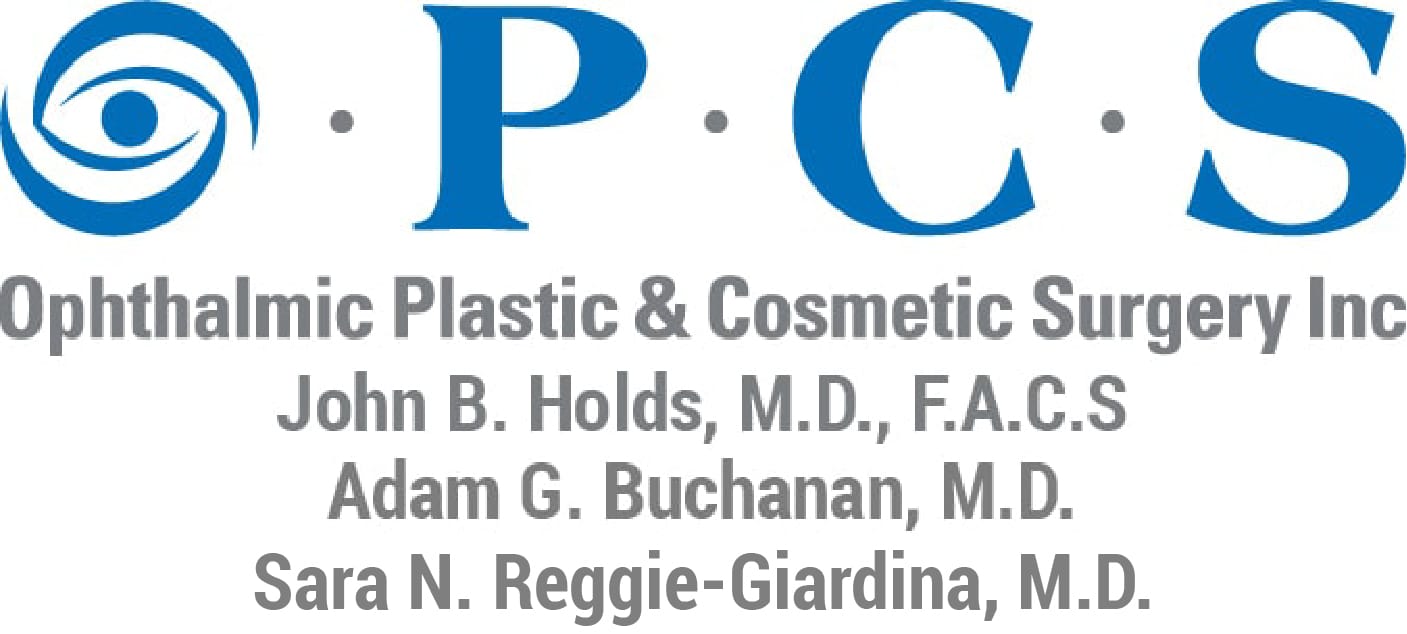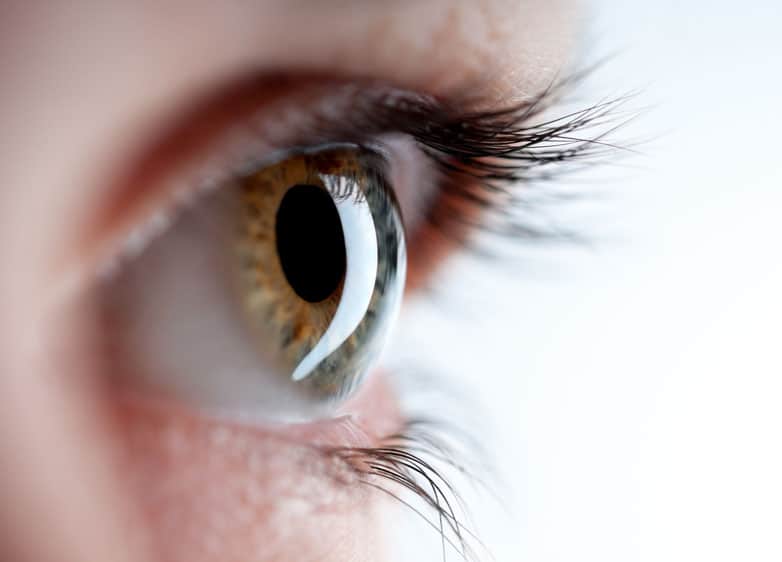Tearing Problems in St. Louis, MO
Tearing Problems
We don’t spend much time thinking about our tears, unless we’re sad or are suffering from allergies. But our natural tears are important for maintaining the health of our eyes. They wash away dust, and they keep our eyes lubricated. When we have problems with our tear-producing system, such as excessive tearing or dryness, this can lead to burning, irritation, and can even blur our vision.
Our team will examine your eyes, diagnose your tearing problems, and treat the problem.
What Are Healthy Tears Made Of & What Do They Do?
When your tears are being correctly produced, they are a mixture of water, oil, and mucus. A balanced tear film nourishes and lubricates the eye, clears away debris, and actually helps with optimal vision by allowing the eye to capture the greatest amount of light.
Tears are produced from a gland under the upper eyelid, the lacrimal gland. They drain into tiny holes, lacrimal puncta, in the inner corner of the eye where the upper and lower eyelids meet. As we blink, tears are pumped into the nose through the tear duct, the nasolacrimal duct. This duct can become obstructed, preventing normal tear drainage and increasing the risk of eye inflammation and infection.
What causes tearing problems?
- Blockage — The most common problems that we see with tearing is the blockage of the eye’s tear drainage system. This can be in the external tear drainage system, in the tear drain in the eyelid, or in the tear drain in the nose. This may be able to be addressed simply with the use of artificial tears, but it often requires surgery to open the blocked drains. Chronic watery eyes can often be due to a blocked nasolacrimal duct. Surgery to remove the blockage is known as dacryocystorhinostomy (DCR).
- Dry eye — A condition known as dry eye involves the production of tears that don’t contain enough water. This incorrect mix makes for irritated, uncomfortable eyes.
- Irritants and infections — Allergic reactions cause our eyes to become red and irritated, signaling an increase in tear production, along with itching and burning. Irritants such as wind, dust, smoke, and eyestrain can cause excessive tearing.
Eye infections, such as conjunctivitis and blepharitis, make the body react by producing excessive amounts of tears in an attempt to wash away the germs and discharge. - Age — As we age, our tear production lessens, so our eyes can become dry more often. Also, if our eyelids begin to droop and sag, the lower lid pulls away from the eye, leading to irritation and tearing. This is called ectropion, and requires surgery to tighten the muscles controlling the eyelids.
- Symptom of other conditions — In many cases, watery or overly dry eyes aren’t necessarily a problem with the tearing system in the eyes, but can be a symptom of other health problems. For instance, diseases like rosacea and rheumatoid can contribute to tearing problems. Menopause affects tearing in older women.
What are Watery Eyes?
Persistently watery eyes is a condition called epiphora. It happens when there are more tears in the eye than can drain or evaporate. Without the right rate of drainage and evaporation, the tears will spill out of the eyes and onto the cheeks.
What Does it Mean When My Eyes Keep Tearing?
Most often, watery eyes come and go. They may result from a cold and congestion or allergies. If excessive tearing persists or you cannot identify a reason for excessive tearing, it is wise to schedule a consultation with your doctor.
Why Are My Eyes Not Producing Tears?
For your eyes to stay functional and comfortable, you must have a consistent tear film. Not too mulch and not too little. If your eyes do not produce enough tear film, it could be due to medication, allergies, an auto-immune condition, or other factors. Interestingly, excessive tearing is one of the most common symptoms of dry eye syndrome. Your ophthalmologist can help determine the reason for your watery eyes and develop an appropriate treatment based on your needs.
Is Surgery My Only Option for Watery Eyes?
No. There are several ways that watery eyes can be treated, most of which do not involve surgery. Some of the more conservative approaches to resolve watering include:
- Allergy medication
- Antibiotic treatment to resolve infection causing watering
- Prescription eye drops
- Warm compresses to help unblock tear ducts
When Should I Call the Doctor?
You may want to contact your doctor for a thorough eye exam if your watering occurs with other symptoms, such as redness, itching, pain, or swelling. Other reasons to schedule a medical examination for watery eyes include:
- A known injury to the eye
- Vision changes such as blurriness
- Tenderness around the sinuses (cheeks or forehead)
- Severe headache
- Lack of improvement with conservative care
Risk factors for developing tearing complications
Tear ducts can become partially or completely blocked, and blockages can occur throughout the tear drainage system.
These are the common causes of obstruction in the tear drainage system:
- Aging — Over time, the puncta can narrow and become easily blocked
- Infection — Inflammation can lead to blockage
- Previous surgery or injury — Scarring or bone damage can obstruct tear flow
- Ectopion
- Loose skin cells and dirt — They can lodge in the tear ducts, clogging them
- Medicated eye drops — Long-term use of certain medicines can block the ducts
- Tumors
- Cancer treatment — This can damage the tear ducts
Tearing problem Treatment Options
At Ophthalmic Plastic and Cosmetic Surgery, we use a variety of treatments to address tearing issues, whether the problem is too little, too much, or poor consistency of the tears.
Eye drops can be used to correct an imbalance caused by dry eye syndrome. They can help address infections, and they can calm irritated, tearing eyes caused by allergic reactions. Antibiotics will eliminate infections that are causing excessive tearing.
Sometimes surgery will be necessary to overcome a blockage in the tear ducts. Surgery is also necessary to repair ectropion.
Our team performs a procedure called dacryocystorhinostomy (DCR) to correct tear duct blockages. The goal of DCR is to create a new passageway for your tears, bypassing the blockage.
DCR Procedure
A dacryocystorhinostomy is usually performed as an outpatient procedure with the patient under general anesthesia. Our team performs it in two ways, external or endoscopic.
- External DCR involves an incision made between the eye and the nose. The lacrimal sac, the location of the tear blockage, is opened into the nasal cavity. This may involve removing some bone from the area over the lacrimal sac. To keep it from blocking again, our team may use either sutures or stents.
- Endoscopic DCR has the same end goal, but it enters through the nose with the use of an endoscope. Once the lacrimal sac is located, the procedure is the same. Recovery is easier with endoscopic DCR, and our team uses this method whenever possible.
Recovery From DCR Surgery
You will likely have some bruising and inflammation for one to two weeks. Diligent use of cold compresses can minimize this. You may have some bloody nasal discharge for the first few days. You’ll need to refrain from blowing your nose for at least five days after surgery. If possible, try to keep your head elevated, even when sleeping, for at least the first week.
Pain is not extreme, and is usually manageable with over-the-counter options. We will provide you with antibiotic eye drops or ointment, plus you will likely also receive prescription antibiotics to counter any possible infection.
How Successful is DCR surgery?
DCR is very successful for removing blockages in the tear duct system, and it has over a 90 percent success rate for keeping the blocked ducts open. There is the possibility of recurrence, however.
“Dr. Holds is the most talented surgeon I have ever been to. He is knowledgeable, kind, and does immaculate work. His office staff are the utmost professional and friendly, and there is always someone to answer your questions.”


